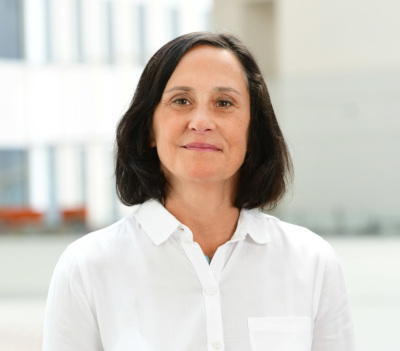On the front lines of news literacy
Judy Bryson, a library media teacher in the Rialto (California) Unified School District, believes that news literacy is critical to student success inside and outside the classroom.


In Checkology’s “InfoZones” lesson, hosted by Tracie Potts of NBC News Channel, students learn how to categorize information into six zones: news, opinion, entertainment, advertising, propaganda and raw information.
“If students are going to advocate for themselves and become empowered citizens, they need to know where to find quality, trustworthy information,” she says.
When teaching news literacy, Bryson uses the Checkology® virtual classroom, the cutting-edge e-learning platform developed by the News Literacy Project.
Checkology includes 13 lessons (plus one translated into Spanish) that enable educators to equip students with the tools to evaluate and interpret what they read, watch and hear so they know what to trust, share and act on.
“Each time I viewed a new lesson, I found myself saying ‘Wow! This is just the point I was trying to make with my library lesson last year/week/period,’” Bryson says.
News literacy for all
News literacy, she says, is especially important for students who get little exposure to credible news and information — so she purchased Checkology licenses with a grant for underserved communities from the Harman Family Foundation.
“While families in Rialto may have access to the San Bernardino Sun, the Los Angeles Times and a variety of magazines at their libraries and at newsstands, few actually buy subscriptions,” she says.
“Priorities for the family budget are more pressing elsewhere. If students consume the news at all, it is often via social media or clickbaited headlines.”
How she uses Checkology
Bryson, an educator for 12 years, works with teachers to integrate library and research skills into a variety of curricula, including English, multimedia production, AVID and digital media. She says students often don’t know how to determine the credibility of sources and content.
Checkology remedies that. “I routinely help students with research projects by teaching them how to evaluate sources,” she says. “The ‘InfoZones’ lesson dovetails nicely with my lessons on identifying the purpose of the author.”
She also appreciates Checkology’s online scoring features and gradebook, which let her see how well students are doing.
The lesson “Practicing Quality Journalism” reinforces instruction on source reliability and authority.
“I loved how it illustrated the process that newspapers go through as opposed to an individual posting news on their personal blog,” she says, noting that she has used it to help journalism students complete their coursework.
“I don’t think the students — and many of the teachers — realize the rigor that news agencies apply to their work in order to assure a quality product.”
Student experiences
As they work through the platform’s lessons, students earn rewards and badges as incentives, she says. And Checkology’s relevant, real-world examples and high-quality presentation of videos, memes and graphics keep them engaged.
Once they complete their Checkology lessons, Bryson interviews her students, who confront their own vulnerability to misinformation, hoaxes and manipulated content.
“I was surprised that even the most tech-savvy among them were incredibly trusting of the media they consumed,” she says. “They knew that unreliable and ‘fake’ material was out there in cyberspace, but it only fooled other people, not them.”
Checkology, she says, showed them that they were wrong.
New to Checkology? Here are some of Bryson’s tips for success:
- Work closely with your information technology team to be sure the platform works flawlessly before you dive in.
- Preview everything ahead of time so you can select the best lessons for your objectives and adjust your other lesson plans to complement the Checkology materials.
- Keep a file of login information. Students will forget their usernames and passwords.
- Teach students to use their dashboards and give them time for do-overs. They will improve as they gain experience with the format.
- Develop discussion questions for the videos and graphics in advance. This is where you can really align Checkology with library standards and objectives. Realize that, with discussion, lessons may not fit in one class period; the platform does offer a space for individual feedback.

